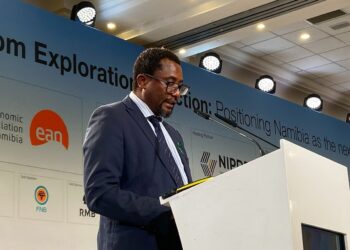
The International Finance Corporation (IFC), a member of the World Bank Group, has announced plans to invest more than N$3.5 billion (US$200 million) in Namibia over the next five years as part of the newly launched Country Partnership Framework (CPF).
The CPF outlines the World Bank Group’s strategic engagement with Namibia from FY2025 to FY2029, focusing on fostering economic growth, creating jobs, and reducing inequality by improving access to essential services.
World Bank Country Director for Namibia, Satu Kahkonen, described the framework as a milestone in the institution’s partnership with Namibia, which has historically been limited to knowledge-sharing and technical cooperation.
“We are pleased to have responded to the country’s interest in borrowing through the first operation approved in May 2024, and we will build on this momentum over the next five years,†Kahkonen said.
The IFC’s investment strategy under the CPF prioritizes key sectors, including agriculture, renewable energy, affordable housing, and digital infrastructure, to drive inclusive growth.
“Through this CPF, we aim to enhance the quality of life and economic prospects of Namibia’s people by prioritizing access to housing, health, education, and renewable energy, among other critical areas,†Kahkonen noted.
Since FY2013, the IFC’s long-term financial commitments in Namibia have amounted to US$114.2 million, primarily in the financial sector.
Cláudia Conceição, IFC Regional Director for Southern Africa, emphasized the importance of leveraging Namibia’s private sector to accelerate economic growth and resilience.
“Through this CPF, we are committed to supporting Namibia in creating a more conducive environment for private sector investments in key areas such as housing, digital infrastructure, renewable energy, and agribusiness. By fostering private sector growth, Namibia can boost job creation, strengthen resilience to economic shocks, and reduce inequality,†said Conceição.
The CPF aligns with Namibia’s Vision 2030, the Second Harambee Prosperity Plan (2020–2025), and the upcoming sixth National Development Plan, expected to be released in March 2025. It also draws on insights from recent World Bank studies, including the Systematic Country Diagnostic and Country Private Sector Diagnostic.
Cabinet has endorsed the CPF, signaling strong alignment with national development priorities. As part of the framework, the IFC will provide advisory services to catalyze private sector participation and support reforms in key state-owned enterprises.
The CPF marks a significant shift in Namibia’s engagement with the World Bank Group and presents an opportunity to unlock the country’s economic potential by addressing systemic challenges and driving investment in critical sectors.











